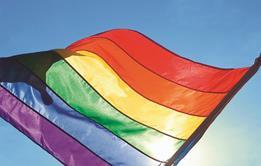The power of social media for LGBT and BME workers takes centre stage in Equality, Diversity and Human Rights Week, writes Dean Royles

I am delighted to be introducing this diversity special report ahead of NHS Equality, Diversity and Human Rights Week (12-16 May).
This is the third time we have organised and showcased this event - we have a lot to be proud of and the concept goes from strength to strength.
- Workforce mix: Diversity makes a difference
- The leaders’ views: Not just black and white
- Download a PDF of the Diversity special report for free
In our first year, the focus was very much on creating a nationally driven initiative - as a demonstration of the commitment many in the NHS have to the diversity and inclusion agenda.
‘We want to combine the national with the local and at the same time build contacts and networks’
Last year, we focused much more on the local aspects of the agenda - and the response from the service was fantastic - with hundreds of locally organised events and activities taking place during one week in May.
This year, we want to combine the national with the local and at the same time build contacts and networks which we hope will be sustained by the service and stand the test of time.
Massive change
The past year or so for the NHS has been monumental and the diversity agenda has not been unaffected by this. We have seen massive organisational change at a local, regional and national level, which has led to many of the previously well established networks struggling.
We have also seen the loss of a number of equality and diversity posts across the service in the last year - and the loss of some significant organisational memory as people have left the NHS. But at the same time we have seen a groundswell movement develop of support and interest in the diversity agenda.
‘Massive organisational change has led to many of the previously well established networks struggling’
At a national level, the Equality Delivery System (EDS2) has been relaunched by NHS England, coupled with a new approach by the Equality and Diversity Council.
Regionally, the newly established leads within the NHS Leadership Academy and Health Education England among others have picked up the baton and taken on the challenges of creating a workforce that is representative of the communities they serve.
And locally, many health and social care trusts have used tools like our Personal, Fair and Diverse campaign and new concepts like unconscious bias to tackle the issues of organisational culture by challenging poor and unacceptable behaviour.
Capturing the enthusiasm
All of this has been underpinned by a growing influence of social media in the way that NHS staff and NHS leaders interact and engage with each other.
We want to capture this spirit of enthusiasm this year but channel it into developing some sustainable networks, which will continue to thrive long into the future.
‘We want to help the BME and LGBT staff networks to re-establish themselves and build a strengthened voice’
This is why the two events that we have organised this year are themed around networks and social media. We want to help the BME and LGBT staff networks that have been affected by the changes of the last year to re-establish themselves and build a strengthened voice.
Social media gives people a worldwide voice but networks give them a local point of contact. So join us. Click and connect - think global, act local.
Dean Royles is chief executive of NHS Employers
Diversity – an HSJ special report

Ahead of NHS Equality, Diversity and Human Rights Week
- 1
- 2
 Currently
reading
Currently
reading
Why a voice for staff is just a click away
- 4

































No comments yet